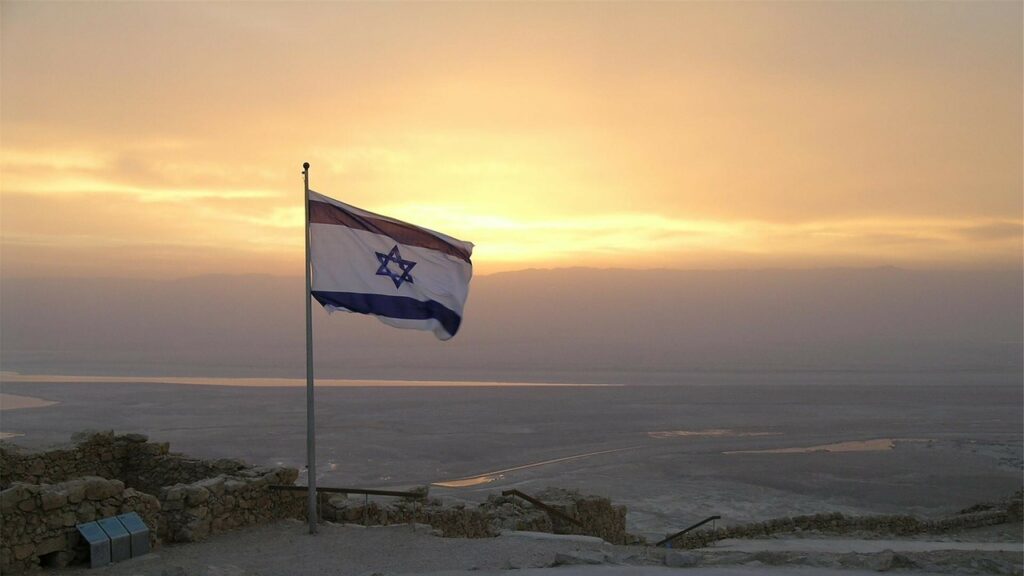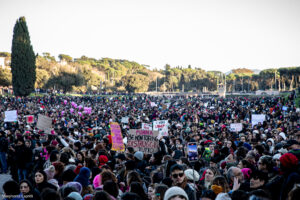In the context of its EU Presidency, the Austrian government will hold a high-level conference on November 21st, titled “Europe Beyond Anti-Semitism and Anti-Zionism – Securing Jewish Life in Europe.” We fully embrace and support the EU’s uncompromising fight against anti-Semitism. The rise of anti-Semitism worries us. As we know from history, it has often
In the context of its EU Presidency, the Austrian government will hold a high-level conference on November 21st, titled “Europe Beyond Anti-Semitism and Anti-Zionism – Securing Jewish Life in Europe.”
We fully embrace and support the EU’s uncompromising fight against anti-Semitism. The rise of anti-Semitism worries us. As we know from history, it has often signaled future disasters to all mankind. The rise of anti-Semitism constitutes a real threat and should be a major concern in contemporary European politics.
However, the EU also stands for human rights and has to protect them as forcefully as it fights anti-Semitism. This fight against anti-Semitism should not be instrumentalized to suppress legitimate criticism of Israel’s occupation and severe violations of Palestinian human rights.
Israeli Prime Minister Netanyahu was to address the conference in Austria, until he cancelled to stabilize his government. He has worked hard to conflate criticism of the state of Israel with anti-Semitism.
To our great concern, we see this conflation also in the official announcement of the conference by the Austrian government. It says: “Very often, anti-Semitism is expressed through exaggerated and disproportionate criticism of the state of Israel.”
These words echo the anti-Semitism definition of the International Holocaust Remembrance Alliance (IHRA). Several examples of contemporary anti-Semitism attached to this definition, relate to harsh critique of Israel. As a result, the definition can be dangerously instrumentalized to afford Israel immunity against criticism for grave and wide-spread violations of human rights and international law – criticism which is considered legitimate when directed at other countries. This has a chilling effect on any critique of Israel.
Moreover, the conference announcement identifies anti-Zionism with anti-Semitism. However, Zionism, like all other modern Jewish movements in the 20th century, was harshly opposed by many Jews, as well as by non-Jews who were not anti-Semitic. Many victims of the Holocaust opposed Zionism. On the other hand, many anti-Semites supported Zionism. It is nonsensical and inappropriate to identify anti-Zionism with anti-Semitism.
We must also not forget that the state of Israel has been an occupying power for more than 50 years. Millions of Palestinians under occupation lack basic rights, freedom and dignity. As the Israeli occupation is now transforming into annexation, it is essential, more than ever, that Europe rejects efforts to restrict free speech and to silence criticism of Israel on the false ground of equating it with anti-Semitism.
Europe also needs to do so for the credibility and effectiveness of its fight against anti-Semitism. Extending this fight to protect the state of Israel from criticism feeds misconceptions that Jews equal Israel – and are thus responsible for what Israel does.
As Israeli scholars, most of whom research and teach Jewish history, we say to Europe: relentlessly fight anti-Semitism to protect Jewish life in Europe, and allow it to thrive. Do so while maintaining a clear distinction between criticism of the state of Israel, harsh as it may be, and anti-Semitism. Don’t mix anti-Zionism with anti-Semitism. And preserve free speech for those who reject the Israeli occupation and insist that it ends.
Professor Gadi Algazi, Department of History, Tel Aviv University.
Dr. Yael Berda, Department of Sociology and Anthropology, Hebrew University of Jerusalem.
Professor Jose Brunner (emeritus), Cohn Institute for the History and Philosophy of Science and Ideas, and Buchmann Faculty of Law, Tel Aviv University. Former director of the Minerva Institute for German History and founding academic supervisor of Israel’s first legal clinic for the rights of Holocaust survivors, Tel Aviv University.
Professor Alon Confino, Pen Tishkach Chair of Holocaust Studies, University of Massachusetts Amherst.
Professor Arie M. Dubnov, Max Ticktin Chair of Israel Studies, Department of History, George Washington University.
Professor Rachel Elior, John and Golda Cohen Professor of Jewish Philosophy and Jewish Mystical Thought, Hebrew University of Jerusalem.
Professor David Enoch, Rodney Blackman Chair in the Philosophy of Law, Faculty of Law, Philosophy Department, Hebrew University of Jerusalem.
Dr. Yuval Eylon, Senior Lecturer in Philosophy, Department of History, Philosophy and Judaic Studies, Open University of Israel.
Professor Gideon Freudenthal (emeritus), Cohn Institute for the History and Philosophy of Science and Ideas, Tel Aviv University.
Dr. Amos Goldberg, former Chair Department of Jewish History and Contemporary Jewry, Hebrew University of Jerusalem.
Professor David Harel, Weizmann Institute of Science; Vice-President of the Israel Academy of Sciences and Humanities; Israel Prize recipient (2004); EMET Prize recipient (2010).
Professor Hannan Hever, Department of Comparative Literature and the Judaic Studies Program, Yale University.
Professor Eva Illouz, Department of Sociology, Hebrew University Jerusalem; former president of Bezalel Academy of Art and Design, Jerusalem.
Daniel Karavan, sculptor, creator of the Memorial to Sinti and Roma Victims of National Socialism in Berlin (2012) and the Way of Human Rights at Germanisches Nationalmuseum in Nuremberg (1989-93); Israel Prize recipient (1977).
Professor Hannah Kasher (emerita), Department of Jewish Thought, Bar-Ilan University.
Professor Michael Keren (emeritus), Department of Economics, Hebrew University of Jerusalem.
Professor Yehoshua Kolodny (emeritus), Institute of Earth Sciences, Hebrew University of Jerusalem; Israel Prize recipient (2010).
Miki Kratsman, former Head of Photography Department at Bezalel Academy of Arts and Design; EMET Prize recipient (2011).
Nitzan Lebovic, Associate Professor, Apter Chair of Holocaust Studies and Ethical Values, Lehigh University.
Alex Levac, Israel Prize recipient (2005).
Dr. Anat Matar, Department of Philosophy, Tel Aviv University.
Professor Paul Mendes-Flohr (emeritus), Department of Jewish Thought, Hebrew University of Jerusalem.
Professor Jacob Metzer (emeritus), former president of the Open University Israel; Alexander Brody Professor of Economic History, Hebrew University of Jerusalem.
Michal Naaman, artist, Israel Prize recipient (2014).
Professor Yehuda Judd Ne’eman (emeritus), Faculty of Arts, Tel Aviv University; Israel Prize recipient (2009).
Professor Dalia Ofer (emerita), Max and Rita Haber Professor of Contemporary Jewry and Holocaust Studies, Avraham Harman Institute of Contemporary Jewry, Hebrew University of Jerusalem.
Professor Ishay Rosen-Zvi, Head Talmud and Late Antiquity section, Department of Jewish Philosophy, Tel Aviv University.
Professor David Shulman (emeritus), Department of Asian Studies, Hebrew University of Jerusalem; EMET Prize recipient (2010); Israel Prize recipient (2016).
Dr. Dmitry Shumsky, Department of Jewish History and Contemporary Jewry, former Director Bernard Cherrick Center for the Study of the Zionism, the Yishuv and the State of Israel, Hebrew University of Jerusalem.
Professor Zeev Sternhell (emeritus), Department of Political Science, Hebrew University of Jerusalem; Israel Prize recipient (2008).
Professor David Tartakover, Israel Prize recipient (2002).
Professor Idith Zertal, Hebrew University of Jerusalem; Institute for Jewish Studies University of Basel; author of ‘Israel’s Holocaust and the Politics of Nationhood’.
Professor Moshe Zimmerman (emeritus), former Director Koebner Center for German History, Hebrew University of Jerusalem.
Professor Moshe Zuckermann (emeritus), Cohn Institute for the History and Philosophy of Science and Ideas, Tel Aviv University.



